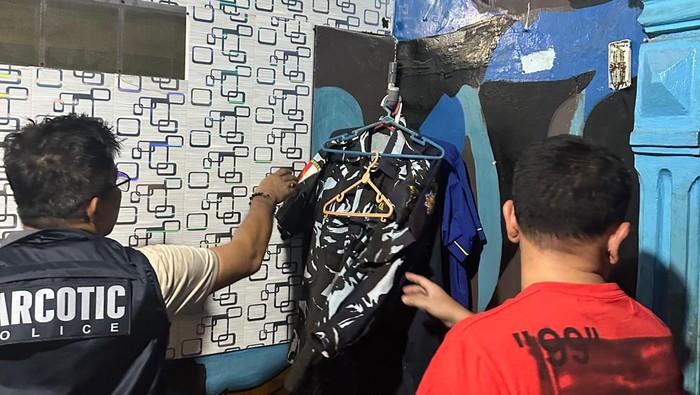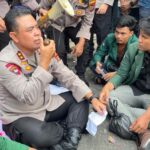Medan –
A community organization office in Medan, North Sumatra, was raided by police after being suspected as a site for drug transactions.
Not only that, the office was also being used as an ecstasy ‘factory.’ Dozens of ecstasy pills ready for distribution were seized from the premises.
Two individuals involved in producing the ecstasy were arrested during the operation. Meanwhile, the sub-regional head of the organization, suspected of being the financier, fled when the raid took place.
He jumped into a river and was found dead the following day. Here are the key facts.
1. Two Suspects Arrested
The North Sumatra Police Narcotics Director, Commissioner Jean Calvijn Simanjuntak, stated that the raid was initiated by public reports regarding suspicious activity at the organization’s office on Teratai Street, Hamdan Village, Medan Maimun District.
“The team conducted surveillance and observed suspect MR (42) entering the location, prompting the raid and search,” said Commissioner Jean Calvijn.
During the operation, suspects MR (42) and FA (22) were arrested.
2. Roles of the Two Suspects
Jean Calvijn explained that the two suspects acted as guards and assisted in producing ecstasy.
“Suspects MR and FA guarded the location, sourced materials for ecstasy production, helped manufacture the drugs, and sold the homemade ecstasy,” he added.
They were paid Rp 3,000 per pill for production and earned Rp 40,000 per pill from sales.
3. Organization Leader Dies After Jumping into River
The leader of the organization in Medan, North Sumatra, fled when his office was raided over suspected ecstasy production. The leader, identified as SS, was found dead the next day.
“As the team conducted the raid and search, suspect SS fled the scene and jumped into a river behind the location. SS was the sub-regional head of the organization,” said North Sumatra Police Narcotics Director Commissioner Jean Calvijn Simanjuntak.
The raid took place on Friday (25/7). SS was found dead the following day.
“The next day at 3:00 PM, we received information that suspect SS had died on the opposite side of the river, not far from the scene,” he added.
Calvijn explained that the raid was carried out after receiving reports that the organization’s office on Teratai Street, Hamdan Village, Medan Maimun District, was being used for drug production and transactions.
4. Organization Leader’s Role in Controlling the Factory
The suspect, identified as SS (38), died after jumping into a river when the office being used as an ecstasy ‘factory’ was raided by police. Authorities revealed SS’s key role.
“Suspect SS produced, controlled, and supplied printing equipment,” said North Sumatra Police Narcotics Director Commissioner Jean Calvijn Simanjuntak in a statement.
Jean Calvijn stated that during the raid, SS died after jumping into the river.
In addition to producing and overseeing suspects MR and FA, SS was identified as the financier who also kept profits from the ecstasy sales produced at the organization’s office.
“Suspect SS also funded suspects MR and FA and stored the profits from sales,” he added.
From the location, authorities seized evidence including 94 homemade ecstasy pills with a star logo, 2 RR-logo chocolate pills (meth), 2 RR-logo brown pills (containing acetaminophen/paracetamol), 2 yellow Dior-logo pills (containing acetaminophen/paracetamol), 0.1 grams of pink powder (MDMA), 1 bottle of food coloring, and assembled ecstasy printing tools, including a hammer, file, pan, plate, spoon, screws, and nails.
Watch Also: Drug Factory Uncovered in Bali, Complete with Cannabis Lab in Basement
<






